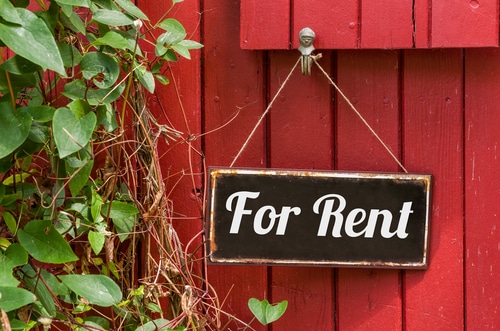How to Prevent Rental Void Periods
As a landlord, you will naturally want to keep void periods to a minimum. Whilst they are an inevitable part of being a private landlord, there are steps you can take to reduce the impact and avoid the costs of extended untenanted periods. From guaranteed letting income schemes, to tips on attracting the right tenants, it’s all covered in this article.

As a landlord, you will naturally want to keep void periods to a minimum. Whilst they are an inevitable part of being a private landlord, there are steps you can take to reduce the impact and avoid the costs of extended untenanted periods. From guaranteed letting income schemes, to tips on attracting the right tenants, it’s all covered in this article.
Top tips to ‘avoid the void’
As a landlord, you’ll always be looking to maximise your investment. Rental voids aren’t good news, because all the while there’s no rental income, you’re still paying out for utilities, mortgage repayments and insurance.
So, how you can avoid the void? Let’s take a look at five top tips.
1. Spruce up your rental property
When there is a fair amount of choice for tenants in terms of properties to rent, their preference will always be for the one that’s best presented and offers modern amenities.
Think about how attractive your property is compared to others in the same price range. Is the kitchen practical and modern? Has the bathroom been updated recently? If you’re renting out a furnished property, have you replaced anything that’s looking worn?
How does your property look from the outside? Does it give the right impression? Is the garden neat and tidy, all the windows and doors in good condition and the paintwork in good order?
A freshly presented property won’t stay untenanted for long. A small investment in sprucing up your rental could pay dividends.
2. Review your rental charges
Have you done your research in terms of market rate? There is no point over-inflating your rental charges just to cover your void period expenses, as it will make it less attractive to tenants.
Be sure to research local market rates for your type and size of property. Try to stick to the local average, and always charge a fair rent. Don’t go the other way though and undercut your rates in an attempt to attract tenants quickly. You could end up drawing in the wrong type of renter, which will do you no good in the long term.
Perhaps instead, consider a bundled offer where you include some or all of the utilities in the rental rate.
3. Advertise early
Always start advertising for new tenants well ahead of the end of the current tenancy. Never wait for the property to be vacated before putting back on the rental market.
Advertise wherever you can, from the usual online property platforms to shop windows and local newspapers. You could also try your local Facebook groups, a free and often effective way to find new tenants.
4. Offer added value
In areas where there are plenty of rental properties to choose from, tenants will always be attracted to the ones that offer something extra, or something that sparks their interest and sits well with their values.
Here are some examples:
Be pet-friendly – lots of renters with pets tend to find it challenging to secure a property that allows their furry friends, so why not make yours the exception?
Provide parking – a lot of people nowadays are avoiding public transport and instead driving or cycling to work. If you can provide allocated or off-street parking, or somewhere safe to store a bicycle, this really could help to make a tenant’s mind up to choose your property over another.
Go green – many tenants, especially millennials, are environmentally aware. They’ll be looking for things that reduce their carbon footprint, such as modern heating, insulation, double glazing, smart home energy monitors, solar power, etc. So think about the energy performance qualities of your property, and see how you can make improvements where necessary. You could even make use of the Green Homes Grant to help fund the cost of energy efficiency related home improvements.
5. Opt for guaranteed letting income
With guaranteed rent, letting agents and landlords can take advantage of a continuous rental income, even when the property is untenanted.
Guaranteed letting income is not to be confused with rent guarantee insurance. Whilst insurance covers rental payments if tenants default, it does not pay out for void periods following the end of a tenancy. What it does do, other than providing a secure income for landlords regardless of the economic climate, is take care of every aspect of property management. It’s the ideal way for a landlord to enjoy an investment that’s totally hands-off, and get paid even when there are no tenants in the property.
Sign up to the homes2let guaranteed letting income scheme and make rental voids a thing of the past
For guaranteed rent Croydon landlords are recommending across the capital, talk to homes2let. Our scheme ensures continuity of rental income, even during void periods. Also covered in our fee-free scheme are tenant sourcing and referencing, preparing the property for letting, and day to day maintenance and repairs.
Why not give our helpful experts a call and discover how to make void periods a thing of the past once and for all?
Related Insights

Leveraging Interest-Only Mortgages: A Strategic Guide for Landlords
Interest-only mortgages allow landlords to pay only the interest on their loan, resulting in lower monthly payments. This can significantly improve cash flow and provide opportunities for portfolio expansion. However, a solid repayment plan is crucial...

New Legislation Grants Councils Extensive Power Over Landlords
New legislation passed on December 23rd, 2024, has significantly expanded the power of councils to charge landlords and regulate the private rental sector in England and Wales. This law centers around "selective licensing," requiring landlords to obtain a license for a fee to rent out their properties. While intended to improve housing standards, concerns have been raised about its effectiveness, potential to increase rents, and the impact of abolishing Section 21. Landlords are urged to understand the new requirements and contact their local council for details.

Making Tax Digital for Landlords Explained
Making Tax Digital (MTD) for landlords has been in the pipeline for a while, but soon the time will come for property investors turning over £10,000 a year or more to start reporting tax on a quarterly basis and filing online. The key date is 6 April 2023, which may sound a way off yet, but preparation is crucial. Here’s what you need to know as a landlord about Making Tax Digital so that when the time comes, you’re all set to comply with the new rules.






